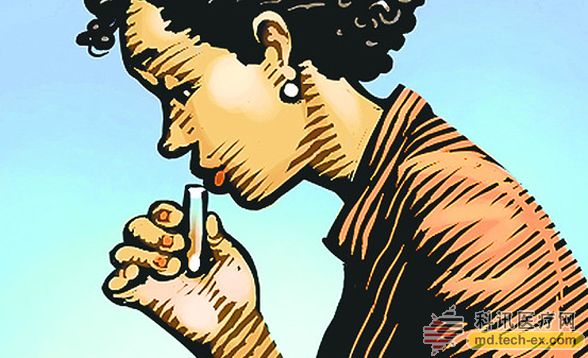Release date: 2016-01-13 In recent years, blood testing technology is considered to be a new breakthrough in disease detection. A study published in the New England Journal in 2013 revealed that the detection of DNA released from sudden tumor cells in the blood can track the response of cancer patients to treatment, when scientists predicted that blood tests would replace invasiveness. Biopsy detection of cancer treatment methods. Blood testing has become the darling of scientists and business In recent years, the clinical effects of cancer blood tests have frequently appeared in top international magazines. For example, a study published in the November 4 issue of Science in Translational Medicine showed that next-generation sequencing can be used to assess changes in the androgen receptor (AR) gene in the blood of patients with prostate cancer, helping to explain the refractory castration. The resistance of sex prostate cancer to androgen; in the same month, the journal Science Translational Medicine also pointed out that scientists have invented a fairly sensitive blood test that can be used for hormone therapy in breast cancer patients. Diagnosis can be used to guide deeper treatments. This method can be used for early diagnosis of breast cancer markers, especially for the diagnosis of breast cancer estrogen levels (ER)-positive breast cancer. In addition to the enthusiasm of blood tests, the blood of the business community is not reduced. The world's youngest female billionaire Elizabeth Holmes and her company Theranos are the best examples. In 2015, the youngest billionaire and its company were questioned and pushed to the forefront, and blood controversy continued. Japan develops an upgraded version of cancer detection method to open a blood test for 2016 Theranos blood test technology was questioned and gave the blood test market an alarm. However, at the beginning of this year, Japanese researchers brought a new light to the blood test. According to Japan’s Asahi Shimbun reported in early January 2016, the National Cancer Research Center of Japan has developed a new method for cancer detection. Using this method, only a small amount of blood samples need to be collected, and comprehensive detection of 60 genetic substances related to cancer can be comprehensively detected. Japanese researchers have placed a focus on the extremely small amount of DNA that is infiltrated into the patient's blood by cancerous tissue, using the most advanced analytical device to detect DNA infiltrated by cancerous tissue in the blood of 48 patients with pancreatic cancer. Through the improvement of the monitoring data analysis method, the researchers can correctly detect 60 genetic material abnormalities by using only 5 ml of blood per patient. Based on this result, the researchers hope to use the method for all types of cancer. In the past, comprehensive cancer testing was performed, and it is usually necessary to extract tissue from the cancerous site of the patient for detection. The new method not only avoids the invasive bed brought to the patient, but also repeatedly tests the progress of the patient's cancer. No longer saliva, Japan develops a cancer sensor that can breathe out to diagnose cancer. Saliva detects disease, and such news is no longer fresh. In 2013, scientists threatened that saliva testing would provide doctors with surgical information for breast and prostate cancer in the next five years, and said the test could analyze single-nucleotide polymorphisms in patients' saliva juice with specific cancers. Relationships, and such experiments can be performed and analyzed through the Global Positioning System. At the beginning of 2016, Japanese researchers studied the diagnosis of sensors comparable to saliva detection tumors. According to Hong Kong's "Ming Pao" reported on January 11, Japan has developed a highly accurate diagnosis and treatment sensor, and it is only a breath to judge whether the user has cancer or diabetes. The sensor was jointly developed by the National Institute of Materials and Materials of Japan and NEC, Sumitomo Seika, Daban University and Swiss Precision Instruments. The sensor is a small chip of a few centimeters square, fitted with a special film. As long as the membrane is exhaled, the sensor analyzes the chemicals in the gas to determine whether the patient has cancer or other diseases. The sensor has been largely developed and will be fully launched in 2022. Experts expect that sensors can be combined with devices such as smartphones to allow the general public to self-diagnose and detect health problems early to reduce medical expenses. Outlook Cancer treatment is a science that never stops. Scientists and entrepreneurs have worked hard in this field, and the achievements have also brought surprises to the outside world. I believe that in 2016, under the good sign of precision medicine, cancer detection technologies such as blood tests will make more breakthroughs. Source: Bio-Exploration alpha arbutin .kojic acid powder .nmn powder.coenzyme q10 powder. glutathione powder .apigenin powder. aloe vera gel freeze dried powder etc Cosmetic Ingredients,Strawberry Powder,Kojic Acid Powder,Glutathione Powder Youth Biotech CO,. Ltd. , https://www.youtherb.com
